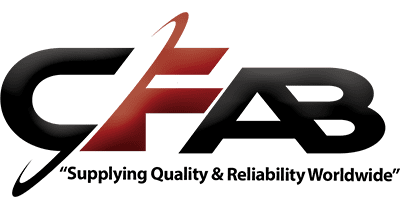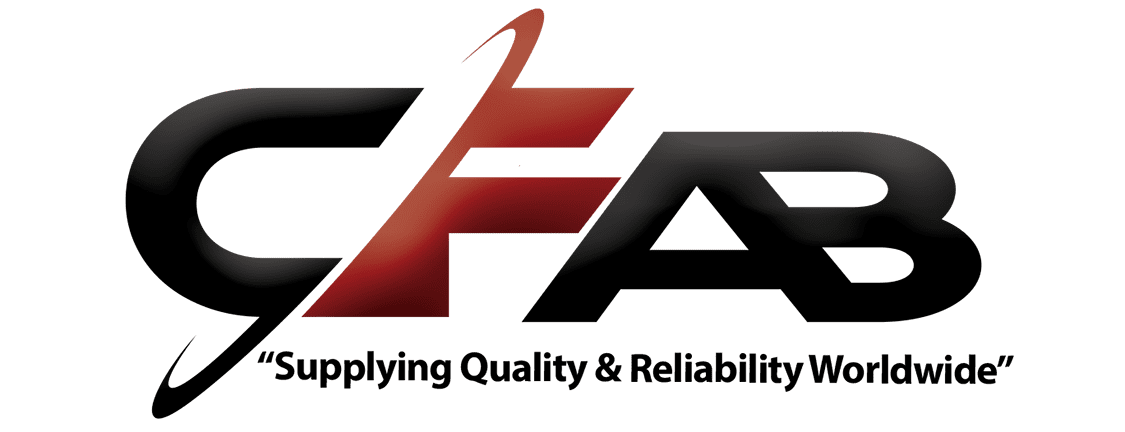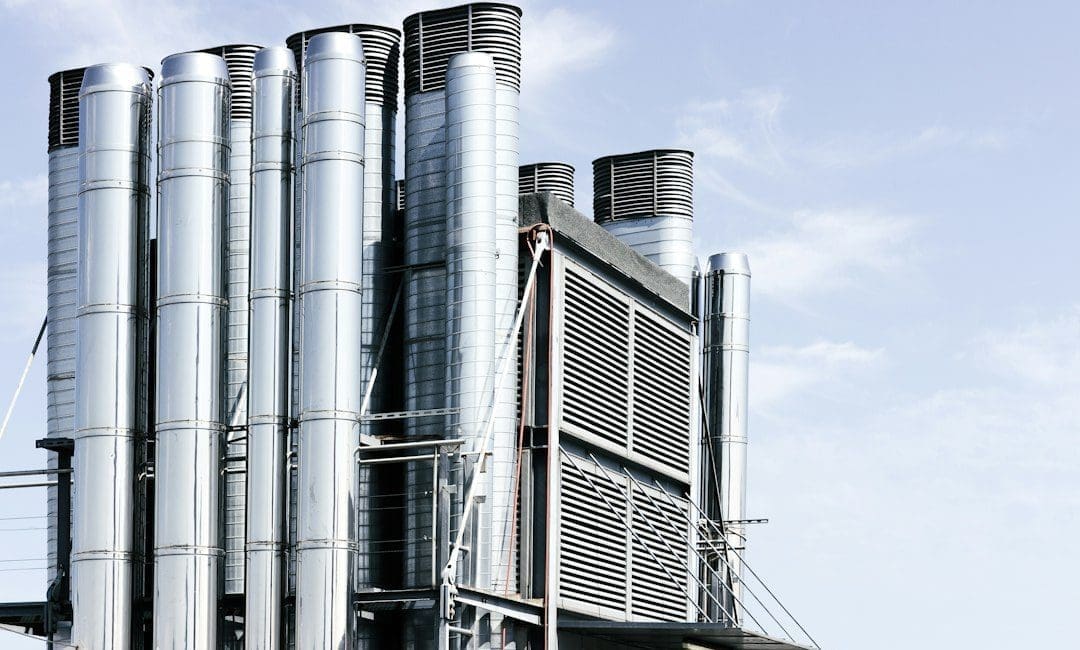Fast Fact: Proper bearing lubrication reduces friction, lowers heat generation, protects against corrosion, and reduces noise and vibration, ultimately enhancing the lifespan of your bearings.
Are you frequently contending with machinery breakdowns and lost-time production due to bearing failure? If so, it’s time to reconsider your approach to bearing lubrication. Bearings, the unsung heroes in numerous machines and mechanical systems, require the right lubrication to function efficiently. Without it, they’re prone to increased wear and premature failure- a cause for significant downtime and hefty repair costs.
At CFAB Global, we’ve supported clients in navigating these challenges since 1998, providing customized machinery solutions and a robust Machine Reliability Program. But we think understand the science behind our solutions- particularly the crucial role of bearing lubricants like those provided by Texas Refinery Corp (TRC) in enhancing machinery efficiency and durability.
Lubrication’s primary purpose is to reduce the friction between the bearing’s rolling elements. As a result, you experience decreased heat, minimal wear and tear, and reduced instances of metal expansion that can cause failure. Further, a good lubricant should be capable of acting as a protective barrier against contaminants that can cause corrosion and compromise the longevity of your bearings.

In this comprehensive buyer’s guide, we aim to walk you through the ins and outs of bearing lubricants, culminating in our top picks for the best bearing lubricants in 2024. We’ll delve into the various types of lubricants, the factors influencing the right selection, their appropriate application and maintenance, highlighting the excellent ranges by Texas Refinery Corp throughout. Come journey with us into bearing lubricants, where science and machinery merge to optimize performance and productivity. Let’s get started!
Understanding Bearing Lubricants
What is Bearing Lubricant?
Bearing lubricant is a substance introduced between two moving parts to reduce the friction between them, which in turn reduces heat and wear. It is a vital component in the preservation of the performance and lifespan of rolling element bearings. Essentially, it helps separate moving components relative to one another, such as rollers and raceways or balls, to prevent wear and tear and friction.
Why is Bearing Lubricant Essential?
The importance of bearing lubricants lies in their multifunctional role in maintaining the performance of bearings. A well-lubricated bearing not only reduces friction but also serves several other functions:
- Protects surfaces from corrosion: Lubricants create a thin film that shields the bearing surfaces from moisture and other corrosive elements.
- Seals against contaminants: They form a barrier that prevents dirt, dust, and other contaminants from infiltrating the bearing.
- Forms a barrier between rolling contact and sliding surfaces: This reduces metal-to-metal contact, minimizing wear and tear.
- Provides heat transference: Lubricants help in transferring heat away from working bearing surfaces, especially in high-speed or high-temperature applications.
Failure to properly lubricate bearings is regarded as one of the most common causes of bearing failure, leading to unplanned downtime, lost revenue, and decreased operating efficiency. Hence, the right selection and application of bearing lubricants are crucial for any manufacturing process.
Different Types of Bearing Lubricants
There are two main types of lubricants on the market: oil and grease. The selection of the right lubricant for your application depends on several factors, including the type of machine, bearing type and size, temperature, load conditions, speed range, operating conditions, and external environment.
Oil Lubricants: Oil lubricants are generally used for high-speed or high-temperature applications that require heat transfer away from working bearing surfaces. The base in synthetic oils, often used in these applications, is usually polyalphaolefins (PAO), polyalkylene glycols (PAG), esters, and silicones for cold and low torque conditions. They consist of either natural mineral oil or synthetic oil.
Grease Lubricants: Grease is typically used in applications where it is important to seal the bearing against contaminants and water or when the bearing operates under special conditions, such as high temperatures or high loads.
At CFAB Global, we recommend the range of lubricants from Texas Refinery Corp (TRC) for their superior quality and proven performance. TRC offers an array of high-quality lubricants designed to operate under various conditions and meet the needs of diverse applications.
In our next section, we will dive deeper into what factors to consider when choosing a bearing lubricant. Also, we will introduce some of the top bearing lubricants for 2024 from the TRC’s range.
Factors to Consider When Choosing Bearing Lubricants
When it comes to selecting the right bearing lubricant, there are several factors you need to consider. The choice of the lubricant can greatly influence the performance and longevity of your bearings.
Application and Conditions
Firstly, the type of application and the operating conditions will dictate the type of lubricant you need. For instance, bearings in high-speed applications or those exposed to high temperatures may require a different kind of lubricant compared to those in slower, cooler applications.
If your application involves extreme pressure, you may need a lubricant specifically designed to handle such conditions like the TRC Extreme Pressure Grease. On the other hand, if your bearings are operating in a high-speed environment, a lightweight, low-viscosity lubricant like the TRC High-Speed Oil could be a better choice. Both these products are available from Texas Refinery Corp, a trusted supplier of quality lubricants and a partner of ours at CFAB Global.
Compatibility with Bearing Material
The compatibility of the lubricant with the bearing material is another important factor to consider. This is because some lubricants may not be compatible with certain materials, leading to accelerated wear or even failure of the bearing. For example, some greases may not be compatible with non-metallic bearing materials or certain types of seals.
As part of our service at CFAB Global, we can help you determine the compatibility of various lubricants with your bearing materials, ensuring you choose the right product for your specific application.
Environmental Factors
Finally, environmental factors can also influence the choice of bearing lubricant.
For instance, bearings used in outdoor applications or in areas with high dust or moisture levels may require a lubricant with excellent water resistance and sealing properties. In such cases, a heavy-duty lubricant like the TRC 880 Crown and Chassis Grease could be an ideal choice. This grease is designed to offer superior resistance to water washout, making it perfect for challenging environmental conditions.
In conclusion, the choice of a bearing lubricant is a critical decision that can significantly impact the performance and lifespan of your bearings. By considering the application and operating conditions, the compatibility with bearing materials, and environmental factors, you can make an informed choice that will help ensure the reliability and efficiency of your machinery.
Next, we will introduce some of the top bearing lubricants for 2024 from the TRC range. So stay with us!
Top Bearing Lubricants for 2024
As an expert in machinery solutions and support, we at CFAB Global understand the importance of using the right bearing lubricant. In collaboration with Texas Refinery Corp. (TRC), we bring you the best bearing lubricants for 2024 that can help enhance productivity, reduce downtime, and extend the lifespan of your machinery components.
TRC’s 880 Crown and Chassis Grease

One of the top performers from the TRC range is the 880 Crown and Chassis Grease. This lithium-based grease lubricant is perfect for applications where ball bearings are hard to access. It provides excellent rust protection and can work effectively in a variety of temperature ranges. Its high resistance to oxidation prolongs the lifespan of the lubricant, ensuring that your bearings stay functional for longer periods.
TRC’s Paragon 3000 Grease

Next up is the Paragon 3000 Grease. It’s a synthetic oil lubricant that is made from synthesized chemicals to offer superior performance. With a high viscosity index, it maintains its viscosity across a wide range of temperatures. This makes it ideal for applications where temperatures can vary significantly. It also offers better resistance to oxidation, which can help extend the life of the lubricant. As per the review from Boca Bearings, synthetic oil like Paragon 3000 provides minimal friction and reduced drag, making it an excellent choice for bearings, RC parts, bike chains, and more.
TRC’s 4102 Complex Grease

Finally, the 4102 Complex Grease is a versatile lubricant that’s ideal for a wide range of applications. This grease lubricant, featuring a high viscosity index, is designed to stay in place and provide a barrier against contaminants. It’s perfect for high-temperature applications or where contact with water or chemicals may occur. This makes it a great option for industries such as aerospace, automotive, and other industrial applications.
In conclusion, each of these bearing lubricants from TRC offers unique benefits to suit different applications and conditions. But remember, even the best lubricant begins to lose its lubricating properties over time. Regular inspection and maintenance of lubricant are essential to avoid bearing failure. For that, our Machine Reliability Program at CFAB Global is always here to help.
As our expert Todd Cleppe always emphasizes, “Reducing friction, preventing corrosion, and reducing noise and vibration through proper lubrication can significantly extend the lifespan of the bearings, ultimately saving time and money for businesses and individuals alike.”
How to Properly Apply Bearing Lubricants
Applying the right bearing lubricant the right way is just as critical as selecting the optimal product. It’s not merely about slathering on the grease or oil. It’s a process that requires precision, understanding, and following a proper procedure. As Todd Cleppe, our expert at CFAB Global, says, “Proper lubrication is not just about the product but also the application.”
Step-by-Step Guide to Lubricating Bearings
Here’s a simplified guide to help you lubricate your bearings correctly:
Step 1: Cleaning
Before applying any lubricant, clean the bearing thoroughly to remove any existing oils, anti-corrosion coatings, and old grease. This step is crucial to prevent potential incompatibilities and to extend the operating life and reliability of the bearing. Use a non-residual solvent for this process to provide the optimum lubrication condition.
Step 2: Ensure Proper Fill Quantity
The right amount of lubricant is crucial. Both over- and under-lubrication can be detrimental to bearing life. Over-lubrication can lead to increased internal friction and heat generation, while under-lubrication can lead to wear or lubrication starvation. The correct lubricant quantity depends on several factors, including operating speeds, design, reservoir volume, and the extent of sealing or shielding in the application.
Step 3: Determine Bearing Free Space
The fill quantity for a grease-lubricated bearing is often specified as a percentage of the bearing’s free space. Therefore, determining the free space correctly is essential. You can use published engineering data or reference charts provided by manufacturers for this purpose.
Common Mistakes to Avoid
When lubricating bearings, there are a few common pitfalls to be aware of:
- Loss of Lubricant: Ensure to re-grease the bearing at proper intervals and with the correct amount of grease. An insufficient lubricant can contribute to equipment failure.
- Incorrect Grease: Always use the correct grease for your specific application. Not every bearing requires the same type of lubricant.
- Excess Lubrication: Over-lubrication can cause the temperature to rise excessively in a bearing, which is especially harmful in open face bearings.
- Grease Degradation: Common types of grease degradation include oil separation from the grease base and chemical breakdown due to excessive heat. Regularly check your lubricant for signs of degradation.
- Grease Incompatibility: Stick with the same grease (or a compatible substitute) for the entire life of a bearing. Not all greases are compatible with each other.
Bear in mind that the lubrication process may vary depending on the specific type of bearing and the operating conditions. When in doubt, consider seeking professional assistance from CFAB Global’s Machine Reliability Program. We have a team of experts ready to assist you in applying the best TRC lubricants to keep your bearings operating at peak performance and extend their lifespan.
Maintenance and Inspection of Bearing Lubricants
Maintaining the optimum performance of your bearings doesn’t end with the correct application of lubricants. Regular inspection and maintenance of bearing lubricants are vital in ensuring the longevity and efficiency of your machinery.
Importance of Regular Inspection
Regular inspection of bearing lubricants is crucial in preventing bearing failures and catastrophic machine breakdowns. It allows you to detect any signs of lubricant degradation or failure early, allowing for timely intervention. Some of the issues that can be caught during regular inspections include loss of lubricant, incorrect grease, excess lubrication, and grease incompatibility, as highlighted by Bearing and Drive Systems.
Bearing inspections should be conducted at intervals aligned with equipment needs. The frequency could depend on factors like the operating environment, the bearing type, and the load on the bearing.
Signs of Lubricant Failure
Lubricant failure is one of the main culprits in bearing failures. Some common signs of lubricant failure include excessive heat generation, unusual noise or vibration, and a visible decrease in the lubricant’s quality.
For instance, you may observe oil separation from the grease base, chemical breakdown due to excessive heat, or even grease hardening. In extreme cases, you might notice patches of rust developing, a clear sign of lubricant failure and a signal for immediate action, as highlighted by a Reddit user’s experience.
How CFAB Global’s Machine Reliability Program Can Help
At CFAB Global, we understand the importance of proper bearing lubrication and maintenance. That’s why we’ve created the Machine Reliability Program to provide comprehensive machinery support to our customers.
Our program offers a customized package of analysis, services, equipment, and support for your machinery needs. We’ll help you set up a regular inspection schedule and guide you on the best practices for maintaining your bearing lubricants.
As Todd Cleppe, our topic expert at CFAB Global, often stresses, “Proper lubrication plays a critical role in preventing common bearing issues like corrosion, wear, and excessive heat. Our program is designed to help you maintain your bearings at their optimum performance, extend their lifespan, and prevent costly downtime.”
By collaborating with CFAB Global, you’ll be able to utilize the best TRC lubricants and leverage our expertise to ensure their effective application and maintenance. Our aim is to help you increase productivity, reduce equipment downtime, and extend the life of your bearings and gearboxes.
In conclusion, the regular inspection and maintenance of your bearing lubricants are just as important as the initial selection and application process. By paying close attention to these aspects, you can significantly enhance the reliability and longevity of your machinery.
Conclusion
Recap of Top Bearing Lubricants for 2024
As we’ve explored in this guide, choosing the right bearing lubricant can significantly impact the longevity and performance of your machinery. To recap, our top picks for 2024 include the following products from Texas Refinery Corp. (TRC):
- TRC’s 880 Crown and Chassis Grease: An excellent multi-purpose lubricant suitable for a wide range of bearing applications.
- TRC’s Paragon 3000 Grease: A high-performance lubricant designed to withstand extreme pressure conditions.
- TRC’s 4102 Complex Grease: Ideal for high-speed applications due to its excellent heat transfer capabilities.
Each of these TRC products, trusted by professionals worldwide, offer unique properties to cater to different bearing applications and operating conditions.
Final Thoughts on Bearing Lubricant Selection and Maintenance
Proper bearing lubrication is not just about choosing the right product; it’s also about correct application, regular maintenance, and timely inspection. As Todd Cleppe, our expert at CFAB Global, often says, “Choosing the right bearing lubricant is only the first step. Regular monitoring and maintenance are crucial to ensure the lubricant continues to perform its function effectively.”
Common mistakes such as over-lubrication or using a low-quality lubricant can lead to premature bearing failure and increased machinery downtime. Therefore, it’s crucial to avoid these pitfalls and follow the guidelines we’ve outlined in this guide.
At CFAB Global, we understand the importance of machinery reliability in ensuring your business’s smooth operation. That’s why we offer a comprehensive Machine Reliability Program designed to increase productivity, reduce equipment downtime, and extend the life of crucial components like bearings and gearboxes.
The right bearing lubricant can make a significant difference in your machinery’s performance and lifespan. Choose wisely, apply correctly, and maintain regularly for the best results.

For more information or support on bearing lubricants or machinery solutions, contact us at CFAB Global. We’re here to assist you in achieving optimal machinery performance and reliability.






